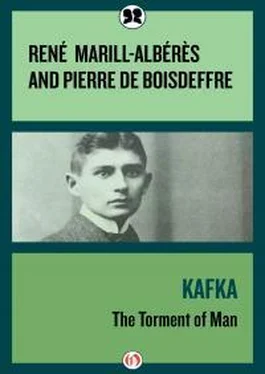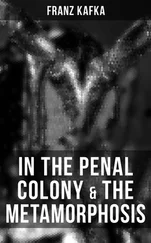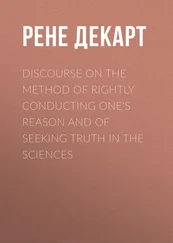At the outset, Kafka seemed to be a completely normal young man . 1
It would be tempting for us to approach the work of Kafka without stopping to examine the circumstances surrounding his birth. Indeed, many critics today claim that only the internal study of a text has any worth and that all other considerations must be excluded. We recall how Péguy ridiculed Lanson, charging him with having carried the method of Taine and Sainte-Beuve to the point of absurdity (“If he produced an Iphigenia , it was because he was the grandnephew of the uncle of someone who had once written a draft of it and had managed to find this draft among his father-in-law’s papers”). 2Proust had no difficulty in showing—in the case of Stendhal or Baudelaire, for example—that the outward appearance of a writer may well hide, from even the most astute critics, the inner depths of the ego which, almost without his knowledge, creates a work. 3Quite apart from its necessity, however, internal criticism alone will not illuminate Kafka’s work. Maurice Blanchot and Marthe Robert have tried this approach and have themselves been forced to acknowledge its limitations, for in this instance the work is inseparable from the situation which it expresses. It reflects, as in a series of mirrors, man’s original contradictions. These contradictions must be brought to light if we are to find our way through the Kafka labyrinth and grasp Ariadne’s thread which, from birth to death, leads the writer to the “dark void” into which truth sends its rays.
It is impossible for us to separate Kafka’s work from his person. Furthermore, instead of taking the lead, he let himself be guided by his work to such a degree that a merger occurred. His work was not an object or an undertaking to be carried to its completion but a master of whom he became the slave and the victim. In his view man was but “a will-of-the-wisp with a silken sheen,” but behind the tiny dancing flame burned the inextinguishable fire of truth. It is truth that Kafka pursues, truth that he seeks to discover even though he knows that it is forbidden him and that its approach is mortal. Even during adolescence, he renounced action, desiring to be only a look, and the social animal in him gave precedence to the man within. Thus the deceptions of social life did not enslave him; he was badly treated, misunderstood, unhappy, but he never lied to himself, never ceased to look, and the radiance of his eyes was the “sole source of light” in the “dark redoubt” in which he lived.
Whether his name is Joseph K., Raban, Gregory Samsa, the Land Surveyor, Georg Bendemann, Josephine the Singer, the Hunger Artist, or the Trapeze Artist, the hero of his books is none other than Kafka himself. Suspect and guilty—of being born, of existing, of thinking, and of loving—he searched for a city that would welcome him. But to enter this city he had to be able to justify his existence in the eyes of others as well as to himself, and that is the one thing he could not do. Weighing on Kafka was his original situation , which prevented him from “possessing truth in one soul and one body.” “In a world of lies,” he says, “one lie cannot even be destroyed by its opposite, it can be destroyed only by a world of truth.” What was this “world of lies,” this curse that never ceased to weigh heavily on Kafka?
… a Löwy with a certain amount of Kafka in his make-up.… 4
On July 3, 1883, in the middle of the commercial section of Prague, at the corner of Karpfengasse and Maisegasse, Julie Kafka, a Löwy by birth, brought into the world the first of six children—Franz Kafka. 5Living among Czechs under Austro-Hungarian domination, a German-speaking Jewish child was certain to be acutely aware of his oddness. All during his elementary schooling (in German) in the Masnytrh, and his secondary schooling in the Staromestké Gymnasium, then reputed to be the best German academy in Prague, Franz had ample time to document his isolation. He felt at home only in the ghetto, in the precarious shelter of a family strongly rooted in its own traditions and beliefs.
He was closest to his mother, but it was from his father that he received the impressions that were to dominate his life. Hermann Kafka, son of a butcher in Wossek, had suffered much during childhood. “All his life Franz was overshadowed by the figure of his powerful and extraordinarily imposing father … who, at the end of a life full of work and success, but also full of worries and illness, succeeded in leaving a large family … and … a block of flats in the center of Prague. The way this firm was founded by a widely ramified family and kept with great sacrifice and effort in good middle-class style by nothing but its founder’s own hard, thorough, careful work, always remained a shining example for Franz’s imagination and creative genius.” 6But the example of this ambitious businessman, far from inspiring confidence, actually served to paralyze his son.
The relations between these two men, united by love without understanding, are detailed in an extraordinary document—an interminable letter (forty-five typewritten pages) which Franz, then thirty-six, wrote to his father. 7It is a meticulous autobiography, an indispensable tool for anyone who seeks to penetrate the mystery of Kafka. In it Kafka tries to answer the question raised by his father: “Why are you afraid of me?” We find at the outset a statement of the father’s grievances against his singular child.
This is more or less your view of the situation: You have worked hard all your life, you have sacrificed everything for your children, especially me; in consequence, I have “had a carefree life,” I have been entirely free to learn what I wished, I have been protected from material worries, with the result that I have had no worries at all; you have not asked for my gratitude in exchange, for you know “the gratitude of children,” but you expected at the very least a little kindness, a sign of sympathy; instead, I have always run from you and sought refuge in my room, with my books, with foolish friends or extravagant ideas; I have never had a heart-to-heart talk with you, … never been a part of the family, never taken an interest in your business or in your other affairs. 8
Kafka wanted to come to terms with his father, to eliminate the inferiority complex which obsessed him in the presence of this “real Kafka” with “his strength, health, appetite, loud voice, eloquence, self-satisfaction, feeling of being superior to the world …” “I needed someone to help me clear my path, but instead you obstructed it in the interest, praiseworthy, to be sure, of making me choose another one … more than anything else, I needed encouragement. For I was already crushed by the mere existence of your body.” Then Kafka adds with a touch of humor (his main defense against the hostility of the world):
Thanks to your energy, you had risen all alone to such a high position that you had unlimited confidence in your own opinion. From your armchair you governed the world. Your opinion was right, any other was foolish, extravagant, abnormal. And because your confidence in yourself was so great, you did not need to be logical in order to be right. It sometimes happened that you had no opinion whatsoever about a matter and as a result all opinions that were at all possible were necessarily wrong, without exception … For me you took on the enigmatic quality that all tyrants have whose rights are based on their person and not on reason. 9
A slight change in the lighting would be enough to slant the portrait unequivocally toward either comedy or tragedy. The father was in fact a temperamental man, benevolent, coarse, foul-mouthed but not mean, sharper with words than with deeds, and taken all too seriously by a son easily overawed by his father’s authority.
Читать дальше












